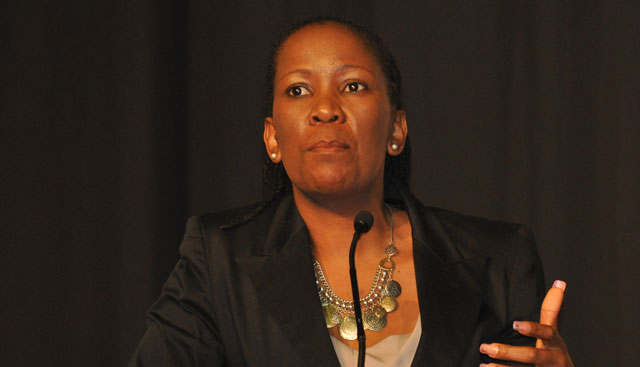 While all the focus in the telecommunications industry is on the fight over call termination rates, an even more important battle is looming large, this time over access to radio frequency spectrum.
While all the focus in the telecommunications industry is on the fight over call termination rates, an even more important battle is looming large, this time over access to radio frequency spectrum.
Billions of rand are at stake as South Africa’s big telecommunications operators — and potential newcomers to the industry — seek access to highly valuable chunks of spectrum that are well suited to building fourth-generation (4G) wireless broadband networks.
Incumbent operators that aren’t able to get access to this spectrum will find their growth prospects choked off as they find themselves unable to keep up with rapidly growing demand from consumers for high-speed data connections.
Access to spectrum is said to be the driving force behind the looming acquisition by Vodacom of Neotel, the operator licensed in the mid-2000s to challenge Telkom. Vodacom has almost completed its due diligence of Neotel and the two companies, which have been in exclusive talks for months, are expected to announce the details of their deal, which could be worth as much as R10bn, within weeks.
Neotel has access to spectrum that will allow Vodacom potentially to power ahead of its rivals in deploying 4G technology. The deal could give it a huge advantage as the mobile industry moves from the era of voice telephony to one dominated by broadband data.
To provide 4G services, Vodacom and its main rival in mobile, MTN, have until now relied on the reallocation of spectrum in bands traditionally reserved for voice. But this is far from ideal as the bands in question are already congested and are insufficient to cope with future demand and to deliver next-generation broadband speeds.
MTN South Africa CEO Zunaid Bulbulia this week expressed doubt whether, under current legislation, Neotel will be allowed to transfer its spectrum assets to Vodacom. Although the National Development Plan advocates spectrum trading, the necessary legislative changes may not be introduced for a year or two yet.
Nevertheless, Bulbulia made it clear that MTN has already lined up a number of “options” should Neotel be allowed to sell its spectrum to Vodacom. He declined to say which parties MTN was talking to, but it’s not hard to work out who they are.
As this column was going to press, the operator announced it had signed a heads of agreement with Telkom, in terms of which the latter will outsource the financial and operational management of its radio access network — the wireless bit that connects consumers to its core network. The parties also intend allowing each other’s customers to roam on their respective networks.
The roaming agreement appears to give MTN access to Telkom’s 4G network, though more detail is needed to understand exactly what has been agreed to.
Another option for MTN, though possibly less likely now in light of the Telkom tie-up, is a deal with Wireless Business Solutions (WBS), which owns wireless service provider iBurst. The chronically underfunded WBS has not been able to take full advantage of its spectrum. MTN, with a capital expenditure budget of about R6bn/year, could use the spectrum assets to expand its 4G offering.
Of course, none of this impending corporate action may have been necessary if government and communications regulator Icasa had got a move on years ago, as they should have, with licensing access to so-called “high-demand spectrum bands”.
The industry is still awaiting a formal policy position on spectrum from the department of communications. Director-general Rosey Sekese said this week that the policy is finally in the process of being finalised and should be published soon.

That won’t stop the industry from hedging its bets. High-demand spectrum looks likely to be made available on an “open access” basis only — meaning licensees would have to open their networks to third parties in some or other form (the details remain sketchy) — and this might not appeal to the incumbent mobile operators.
Government is also likely to want to use the licensing process to foster competition, meaning MTN and Vodacom may not necessarily be guaranteed access, even though they have the resources to get the job done.
The mess that is South Africa’s migration from analogue to digital terrestrial television is also holding back the licensing of the “digital dividend” that will be freed up by broadcasters. The dividend is a crucial band for delivering 4G services in both urban and rural areas.
With all this uncertainty, no one should be surprised that the big operators, keen to secure their future growth, are drawing up alternative plans to meet the explosion in demand for broadband.
- Duncan McLeod is editor of TechCentral. Follow him on Twitter
- This column was first published in the Sunday Times




